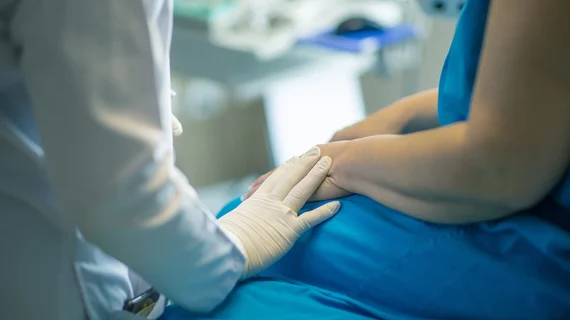Synthetic MRI measures predict breast cancer treatment responses, according to new research
Synthetic MRI exams have predictive value in distinguishing which breast cancer patients will respond most favorably to neoadjuvant chemotherapy, new research shows.
Synthetic MRI is a newly developed technique that enables experts to capture quantitative values, such as T1 and T2 relaxation times and proton-density (PD) image mapping, during a single scan using a multi-echo and multi-delay acquisition method to derive these values simultaneously.
Experts recently shared the process of how they validated the use of synthetic MRI for predicting treatment responses of breast cancers in a paper published in Clinical Radiology.
Corresponding author of the paper M. Matsuda, of the Department of Radiology at Ehime University Graduate School of Medicine in Japan, and colleagues determined the method’s effectiveness after conducting an analysis of 37 patients with 39 breast cancers who underwent dynamic contrast-enhanced (DCE)-MRI and synthetic MRI before the starting neoadjuvant chemotherapy (NAC).
Multiple sequences were obtained both before (pre) and after (post) a contrast agent was administered to the patients. Of the 39 cancers analyzed, 14 were reported to have reached pathological complete response (pCR), while 25 did not (non-pCR). Multivariate analyses revealed that the SD of Pre-T2 were significant and served as an independent predictor of pathological complete response. Additionally, the experts noted that the washout curve pattern was significantly more common in pCR.
“In the present study, the SD of Pre-T2 obtained from synthetic MRI was significantly higher in non-pCR (16.24 ± 7.32) than in pCR (9.64 ± 3.18). High Pre-T2 SD leads to tumor heterogeneity owing to tumor necrosis,” the authors explained.
They went on to suggest that quantitative measures derived from synthetic MRI exams could be used to help guide treatment decisions for breast cancer patients, emphasizing the utility of the exam for predicting pCR of various cancer subtypes.
The study abstract can be viewed here.

